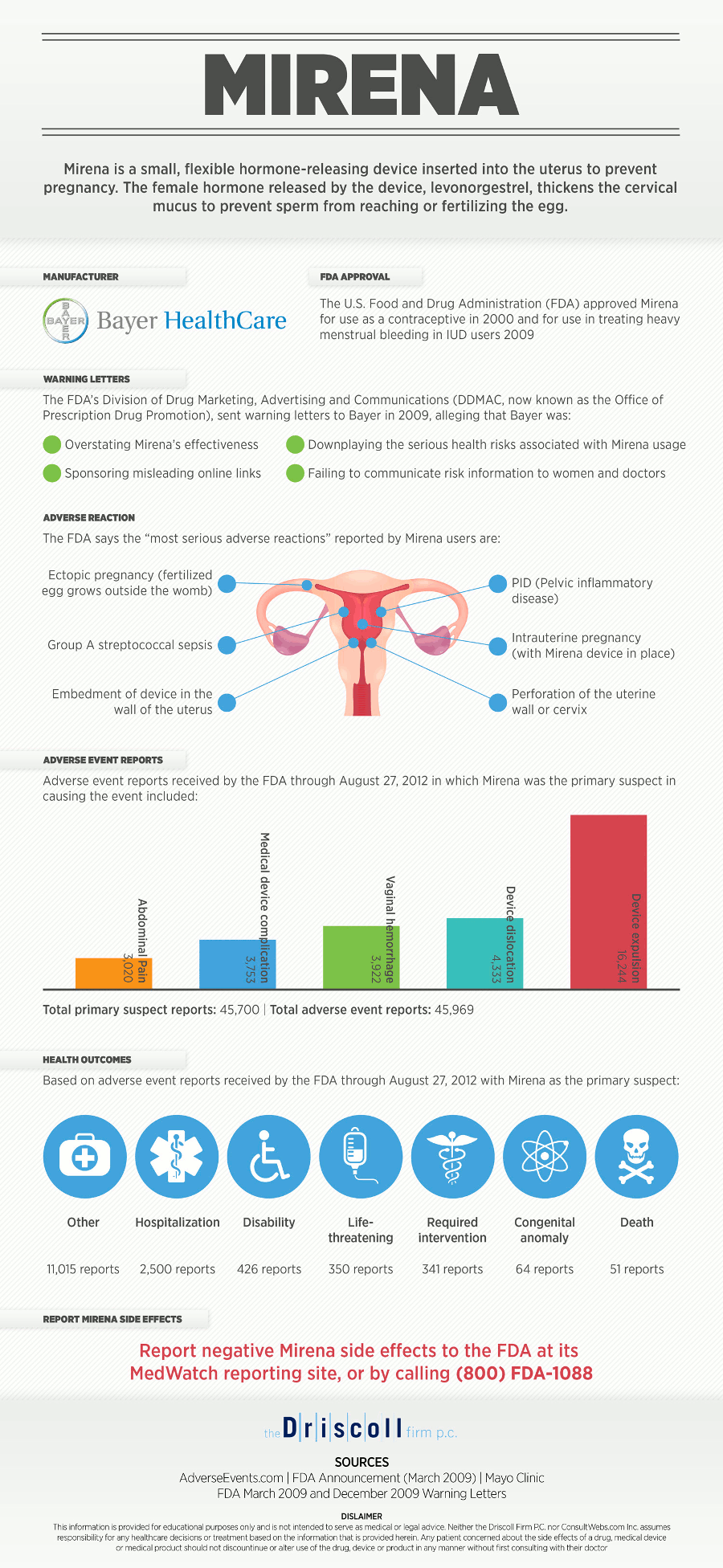Want to know more about the pros and cons of Mirena IUD? Well, good information and details about this will definitely help you make a well informed decision whether this birth control method is the best for you or not. But what exactly is Mirena? It is an intrauterine contraceptive device or IUD. Like any other contraceptives available out there, there are also lots of pros and cons of Mirena IUD that users should take into careful consideration.
The Pros of Mirena IUD
- Mirena IUD has low levonorgestrel hormone dosage, thus it offers utmost protection as opposed to pregnancy.
- Women who do not want to take estrogen based contraception will be able to avoid estrogen significantly by using this contraceptive method.
- Since hormone passes all through the wall of the uterus and not on the bloodstream as in contraceptive pills, much lower quantity of hormone will be needed in order to avoid pregnancy.
- This is very ideal for those who do not want to put huge amount of hormone in their bodies.
- It is beneficial for child spacing. Mirena is very suitable for the different phases of building families. Just because this IUD can be work for 5 years does not mean that it needs to be that way.
- It is private, reversible, as well as coitally independent contraception method.
- Ideal for breastfeeding mothers.
- Ideal for special need patients who require long term support with an effective menstrual management.
It’s good to know about the above mentioned pros of Mirena IUD especially before committing yourself to it. By knowing this, you will have peace of mind and a sense of ease that your body is safe and secured. But, you should also consider the different drawbacks that are being associated with the Mirena IUD.
The Cons of Mirena IUD
- Perforation during the time of insertion.
- Perforation incidence is .6 – 1.6 every 1000 insertions.
- During insertion, possible infection may actually occur.
- Expulsion may also occur. This is significantly common during first year.
- Irregular spotting or menstrual bleeding may occur, more often during the first four to six months.
- A small risk for contracting pelvic inflammatory diseases in uterus, ovaries, or fallopian tubes.
- Small chance of Mirena device attaching to the wall of the uterus and even tears the lining of the uterus. If this actually happens, surgery may be required to rectify it.
- A small chance that the Mirena will move out of the correct place. So, it is essential that you let it be checked regularly.
- Other negative side effects of Mirena IUD include lower abdominal and pelvic pain, irregular periods, and ovarian cysts.
Now that you know about the pros and cons of Mirena IUD, do you think this could be the best option for you? Consider various essential factors, better yet consult your doctor about it.
